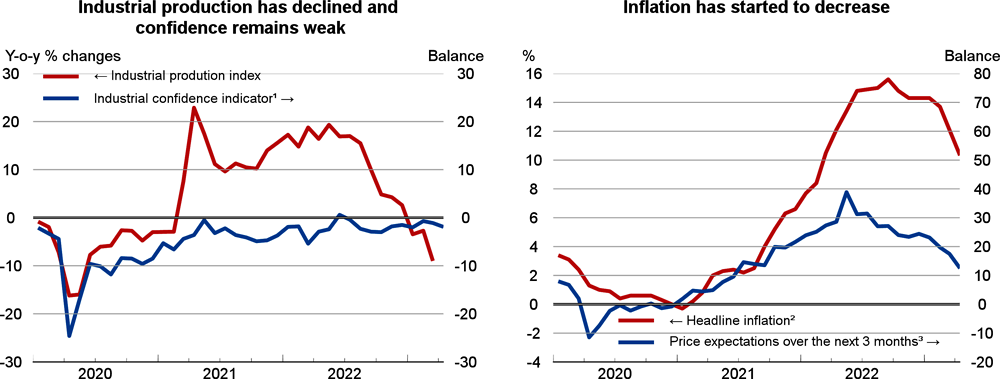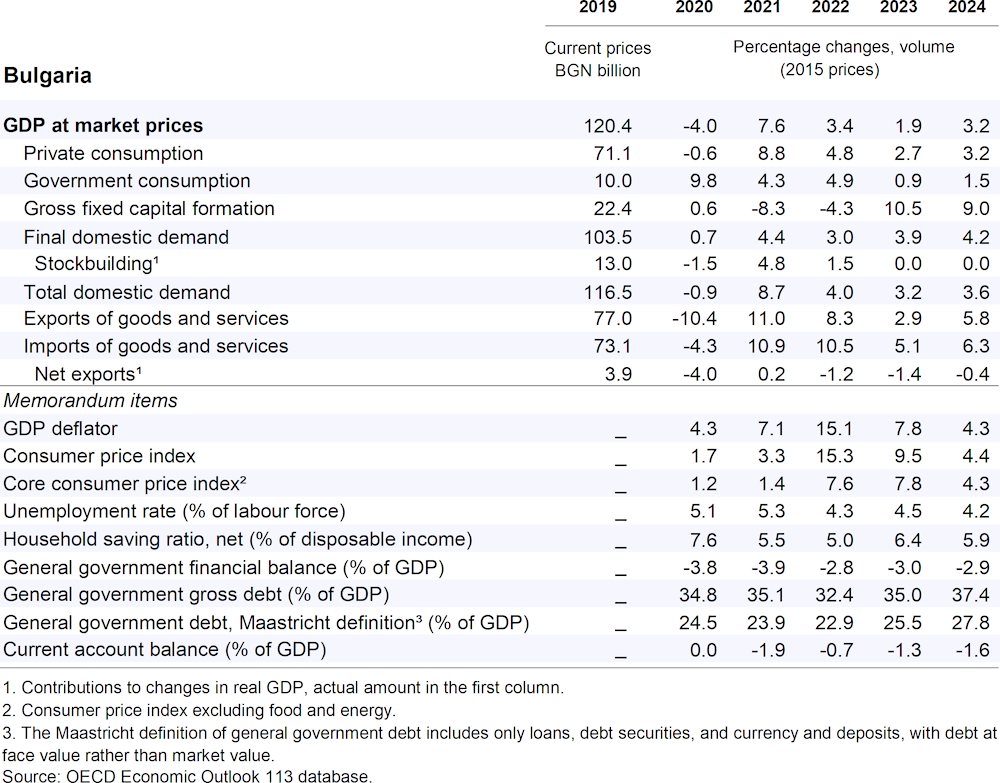Growth is projected to slow to 1.9% in 2023 due to global headwinds, including the slowdown in Bulgaria’s main trading partners, but then rebound to 3.2% in 2024. Private consumption growth will slow in line with lower employment growth. The disbursement of EU funds was delayed in 2022, but is expected to catch up to a large extent in 2023. Inflation is expected to moderate in 2023 and in 2024, but there are risks from high wage increases.
Due to high inflation and political instability, which delayed several important legislative packages, Bulgaria postponed the target date for euro area entry to 2025. Most energy‑related fiscal measures will continue, financed from large windfall revenues of the large electricity companies but should be better targeted and designed. The unemployment rate is low, but there are persistent labour shortages. Migration and activation policies need to be stepped up to encourage emigrants to return and to ensure that those with work capacity join the labour market. Upskilling the population is crucial to foster growth and further improve living standards.


